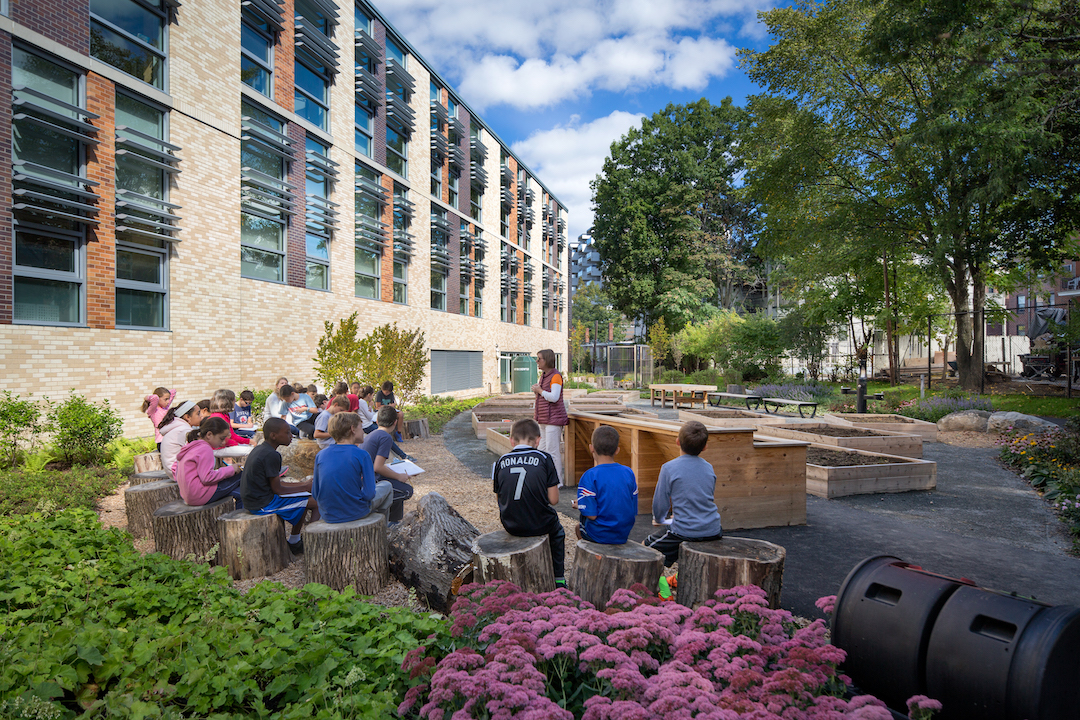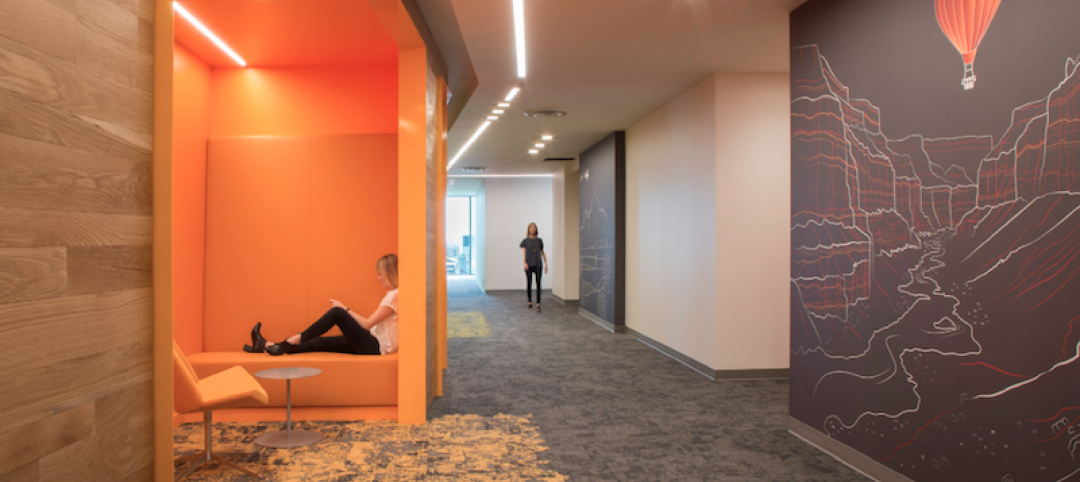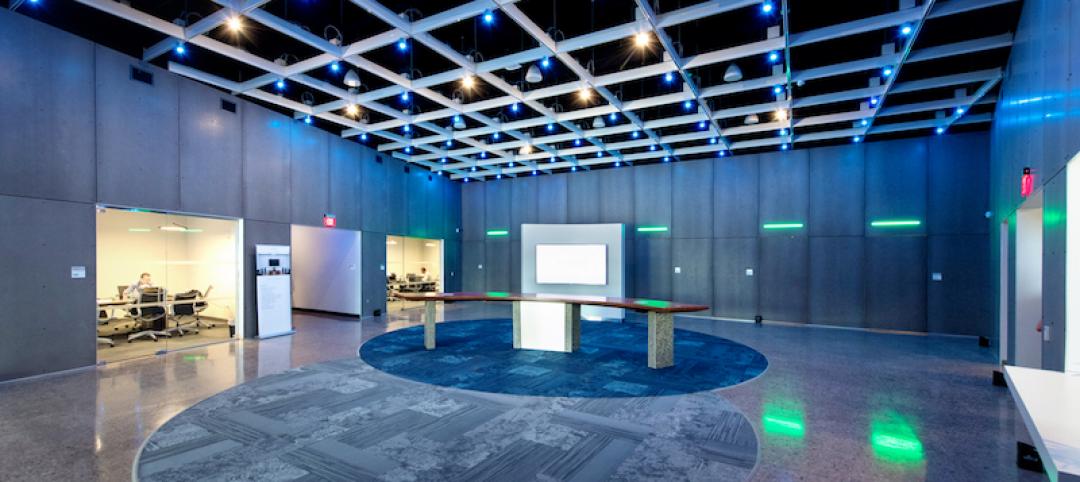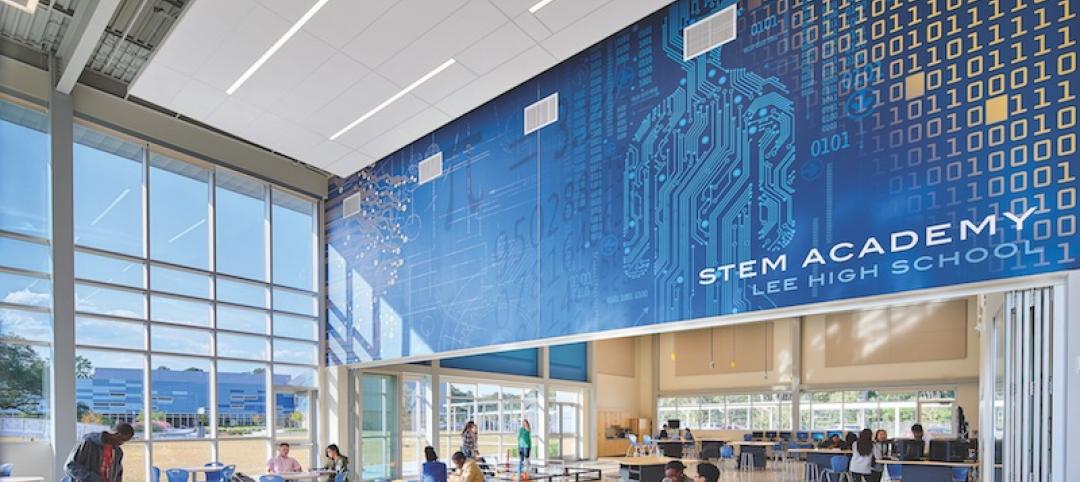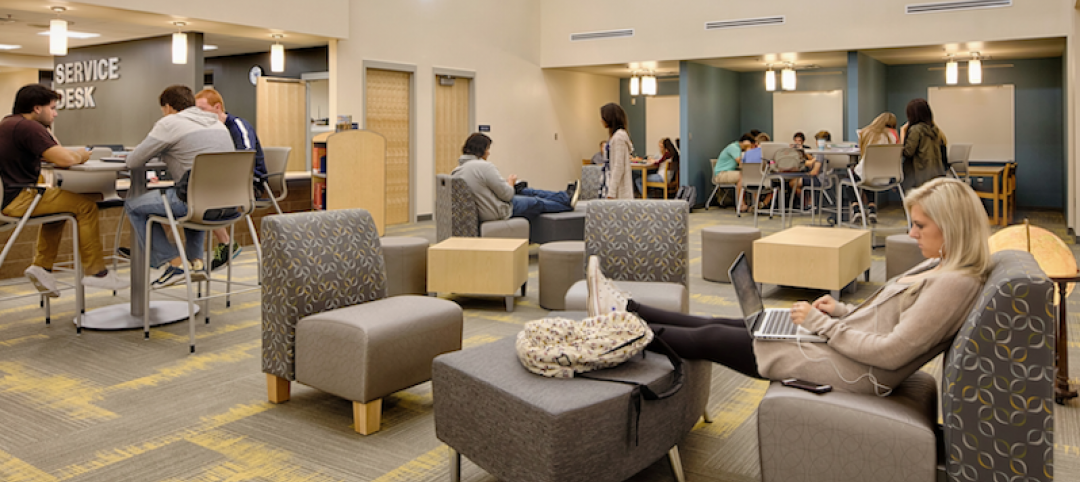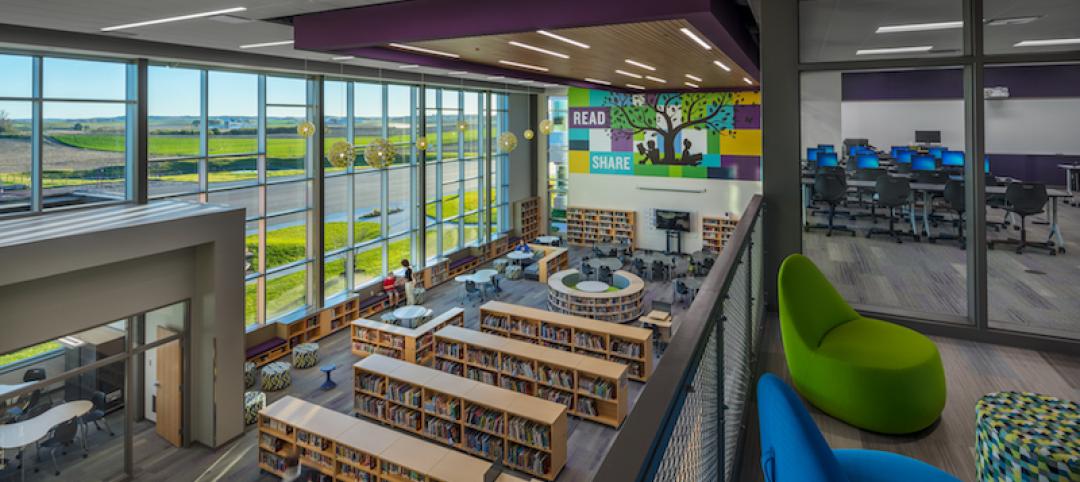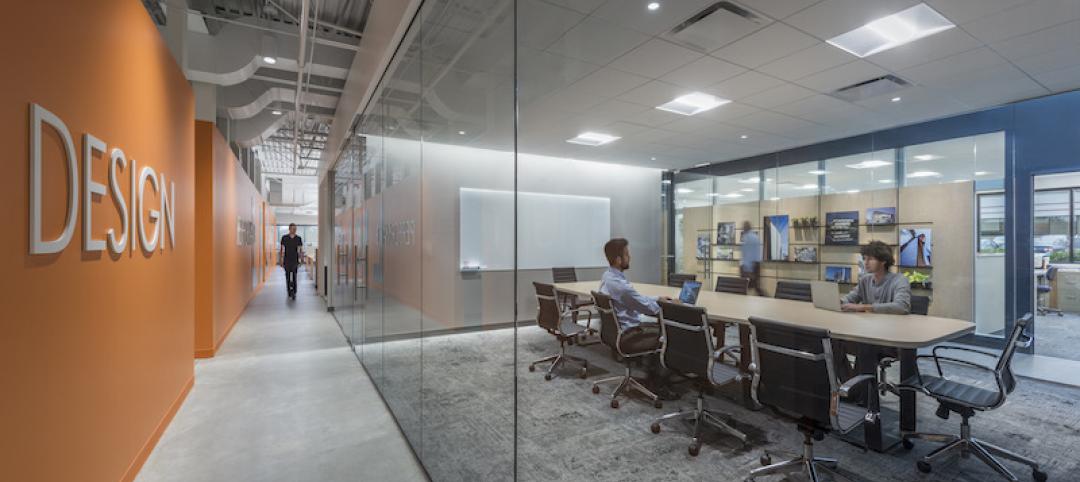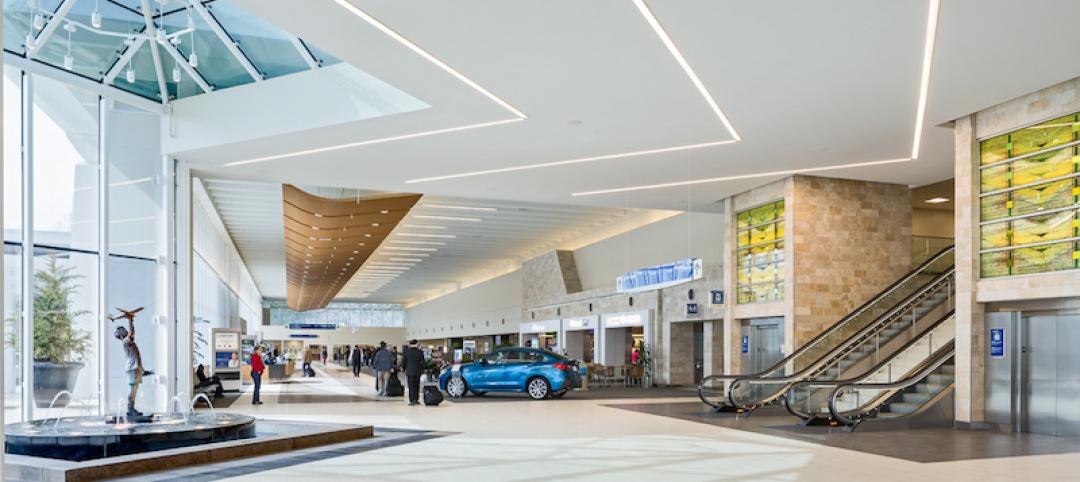The nation’s school districts are focused on providing well-rounded learning experiences that plant seeds for future vocations in science, technology, business, or skilled trades.
In New Hampshire, the new Dover High School and Regional Career Technical Center brings together 1,500 students in a combined 302,000-sf facility.
“Parents and educators recognized the importance of making sure the career technical students were exposed to the highest academic standards possible, and that the traditional students had more involvement in hands-on programs and activities,” says Laura Wernick, FAIA, REFP, LEED AP, Senior Principal, HMFH Architects, Cambridge, Mass. “The high-bay spaces are integrated with traditional academic spaces, so a science classroom might be next to an automotive lab.”
School districts are continuing to shift their focus toward STEM and STEAM learning. NeoCity Academy, a new 500-student public STEM magnet high school in Kissimmee, Fla., will open in August. Located in a 500-acre technology district, the net-zero energy facility will expose students to an engineering, biomedical, and cyber security curriculum in immersive, flexible learning environments. Many of the school’s instructors will come from the University of Central Florida and the Florida Advanced Manufacturing Research Center.
ALSO SEE: Top 140 K-12 Sector Architecture Firms
ALSO SEE: Top 75 K-12 Sector Engineering Firms
ALSO SEE: Top 90 K-12 Sector Construction Firms
Gould Evans and DLR Group collaborated on the design of the Missouri Innovation Campus in Lee’s Summit, Mo. The STEM-focused facility unites 600 high schoolers and 1,200 University of Central Missouri students in a shared campus that enables high school graduates to earn associate and bachelor degrees.
Elementary schools are also embracing new learning environments. At Centerview Elementary School, a new K-4 school in Spring Lake Park, Minn., flexible learning studios include spaces for group learning, active learning, STEM, and specialized learning.
Outdoor classrooms, a rain garden, school gardens, and natural play elements are integral learning elements at Coolidge Corner School, an urban pre-K-8 school in Brookline, Mass. “Varied outdoor environments can play an important role in a student’s social and emotional development,” says Pip Lewis, Principal, HMFH Architects.
OVERCOMING FUNDING LIMITATIONS at school districts
Some school districts are circumventing funding obstacles through creative renovation projects, says Steven Herr, AIA, Director of Design, Fanning Howey, Indianapolis. “An old elementary school can become an innovation campus. A spirit shop can become a business incubator lab,” he says. Schools are becoming more diligent in identifying and repurposing underused space for a modern use.
In Hilliard, Ohio, a suburb of Columbus, Fanning Howey oversaw the transformation of a traditional K-6 into a new innovation campus, all without moving a single wall. The Hilliard Innovative Learning Hub, which serves grades 6-12, provides experiences not available elsewhere in the district, such as a new Design Thinking course that incorporates language arts, science, and public speaking.
Public referendums are no longer the obvious go-to strategy for funding K-12 construction. “More states are going to need to pursue alternative methods to fund projects that won’t require voter approval,” such as private partnerships offered as tax credits and tax-direct incentives to districts, says Vaughn Dierks, AIA, LEED AP, Partner, Wold Architects and Engineers, Saint Paul, Minn.
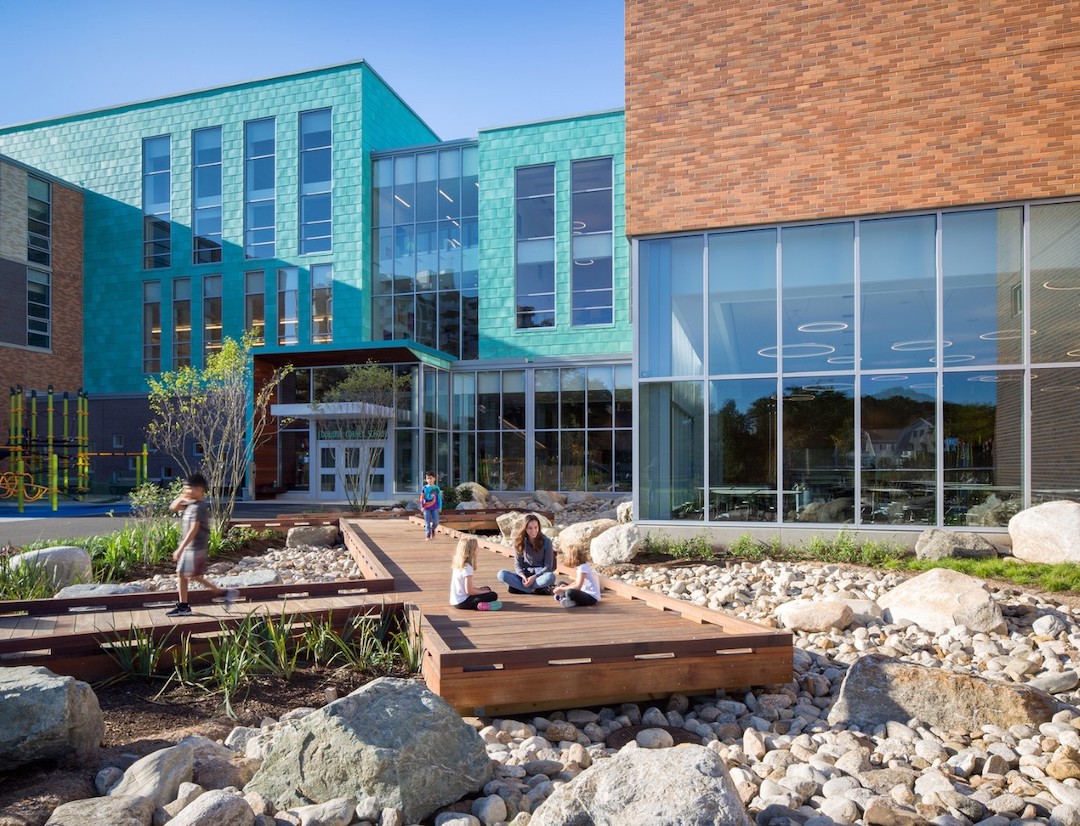 Coolidge Corner School, Brookline, Mass. Photo: HMFH Architects / Ed Wonsek
Coolidge Corner School, Brookline, Mass. Photo: HMFH Architects / Ed Wonsek
Many rural and smaller communities can’t afford to make even basic investments in maintenance and infrastructure. In Colorado, the BEST (Building Excellent Schools Today) grant program allocates a portion of state revenue to fund school facilities in need, particularly in small districts. “This is one way states are making safe, modern, effective teaching environments accessible to all students,” says Dierks.
The Texas legislature is considering a $9 billion plan, including property tax reform, to fund the state’s public schools. “This is a heated topic,” says Angela Cardwell, Chief Marketing Officer, Joeris General Contractors, San Antonio. “While funding for construction comes from bonds and not from the same pool of money as allocated by the state legislature, any reform will impact the overall state of school spending.”
Wold’s Dierks says school districts can use maintenance projects as a means to achieve broader goals. Edina, Minn., is studying how to use roof replacements as an opportunity to partner with third-party solar panel providers to maximize life cycle benefits and minimize costs, he says. The Minneapolis Public Schools system is using the renovation of outdated restrooms and locker rooms as an opening to set new practices for personal comfort and safety amid questions of gender identity, equity, and privacy.
Some K-12 schools are expanding their core educational mission to provide broader social and human service functions for students and communities. Last March, Mayo Clinic opened a health clinic at the Alternative Learning Center, a nontraditional school in Rochester, Minn., where about two-thirds of students qualify for free or reduced-price lunches. The new clinic provides acute and chronic medical care to students and their dependents; payment is adjusted according to ability to pay. Other onsite conveniences provide homeless students with daycare, showers, laundry facilities, and clothing and food shelves. (More K-12 school building news and trends.)
MORE FROM BD+C'S 2019 GIANTS 300 REPORT
Related Stories
Giants 400 | Oct 17, 2017
Top 110 office architecture firms
Gensler, Jacobs, and HOK top BD+C’s ranking of the nation’s largest office sector architecture and AE firms, as reported in the 2017 Giants 300 Report.
Giants 400 | Oct 16, 2017
Data center market forecast: Clearly cloudy
Look for mission-critical construction to double in the next few years.
Giants 400 | Oct 12, 2017
Top 30 data center engineering firms
Syska Hennessy Group, AECOM, and Morrison Hershfield top BD+C’s ranking of the nation’s largest data center sector engineering and EA firms, as reported in the 2017 Giants 300 Report.
Giants 400 | Oct 11, 2017
Top 25 data center architecture firms
Jacobs, Corgan, and Gensler top BD+C’s ranking of the nation’s largest data center sector architecture and AE firms, as reported in the 2017 Giants 300 Report.
Giants 400 | Oct 9, 2017
Job-ready learning: The newest K-12 schools nudge students toward careers
Some long-term K-12 trends—like beefing up safety and security, and designing for more natural light and outdoor learning space—are still in vogue.
Giants 400 | Oct 9, 2017
Top 80 K-12 construction firms
Gilbane Building Co., Balfour Beatty US, and Skanska USA top BD+C’s ranking of the nation’s largest K-12 sector contractors and construction management firms, as reported in the 2017 Giants 300 Report.
Giants 400 | Oct 6, 2017
Top 40 K-12 engineering firms
AECOM, IMEG/KJWW/TTG, and STV top BD+C’s ranking of the nation’s largest K-12 sector engineering and EA firms, as reported in the 2017 Giants 300 Report.
Giants 400 | Oct 6, 2017
Top 90 K-12 architecture firms
Stantec, DLR Group, and PBK top BD+C’s ranking of the nation’s largest K-12 sector architecture and AE firms, as reported in the 2017 Giants 300 Report.
Giants 400 | Oct 5, 2017
On wings of gold: Alternative financing schemes are propelling the high-flyin’ air terminals sector
The $4 billion renovation of New York City’s LaGuardia Airport is the first major U.S. aviation project delivered using a public-private partnership (P3) model.
Giants 400 | Oct 4, 2017
Top 40 airport construction firms
Hensel Phelps, Turner Construction Co., and Skanska USA top BD+C’s ranking of the nation’s largest airport sector contractors and construction management firms, as reported in the 2017 Giants 300 Report.


